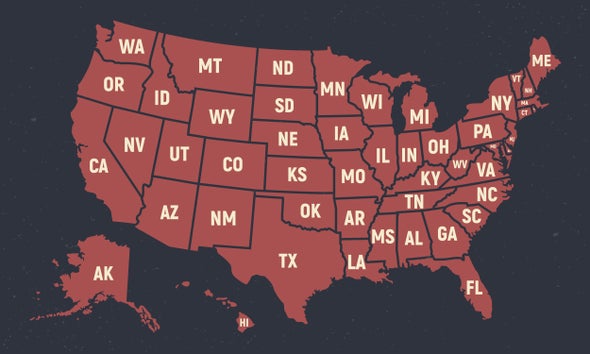(单词翻译:单击)
听力文本
This is Scientific American's 60-second Science, I'm Christopher Intagliata.
Remember Crystal Pepsi?
[CLIP: Crystal Pepsi ad]
It debuted in the early '90s, to a soundtrack of Van Halen. But if you're blanking, don't feel bad. Because Crystal Pepsi disappeared—just a few years after it debuted.
But presumably the soft drink had some fans. Previous research found that people who buy products destined to fail—like Crystal Pepsi—also buy other duds.
"So every time we look, yeah, these people would be doing things were different than their neighboring ZIP codes."
Duncan Simester is an economist at M.I.T. He and his colleagues call these people "harbingers of failure"—because they tend to buy products that flop. Now they find that those harbingers tend to cluster in the same zip codes.
They made the discovery by tracking the purchasing habits of customers at a mass merchandise chain—think Walmart or Target. And they found that certain customers kept buying products most other people didn't want. In a follow-up experiment, they found that those people also tended to purchase more unpopular, niche items at a clothing retailer. But it goes further. These same people bought homes that appreciated less than other homes. And what's more, they were more likely to support political candidates who lost. All of which indicates that these people—who, based on zip codes, also tend to live near each other—consistently pick losers.
The results are in the Journal of Marketing Research.

Unfortunately, the researchers won't reveal which zip codes are the ones in question. But the neighborhoods tend to be suburban, with lower household income, less educated residents and more single parents. People there also use a lot of coupons, and more of them are white than are the residents of other zip codes.
As to why these zip codes pick losing candidates or products? It's possible they're just not as engaged as other consumers.
"One of the things we looked at is: Are these people less likely to write product reviews? The answer is yes. If they write reviews, do they tend to be shorter reviews? And the answer is yes."
Of course, retailers could learn from this when test-marketing new products. Rather than looking at how many units sell, it might be more useful to see if the people buying the product consistently see their picks go belly-up.
[CLIP: Indiana Jones and the Last Crusade ("He chose poorly").]
Thanks for listening for Scientific American's 60-second Science. I'm Christopher Intagliata.
参考译文
这里是科学美国人——60秒科学系列,我是克里斯托弗·因塔格里塔。
还记得“水晶百事可乐”吗?
[音频剪辑:水晶百事可乐广告]
这款可乐在上世纪90年代初首次亮相,广告曲是范·海伦乐队的歌曲。但如果你没有印象,也不要难过。因为水晶百事可乐在上市几年后就停产了。
但可能当时就有人喜欢上了这种软饮料。先前研究发现,购买像水晶百事可乐这种注定失败的产品的人,也会购买其他“废物”。
“我们每次都会发现,这些人做的事与他们的邻居完全不同。”
麻省理工学院的经济学家邓肯·希迈斯特说到。他和同事称这些人为“失败的先兆”,因为他们经常购买失败的产品。现在,他们发现这些“先驱者”往往聚集在相同区域。
通过在沃尔玛或塔吉特等大型商品连锁店追踪顾客的购买习惯,他们发现了这种情况。他们发现,某些顾客总会买其他人不想买的产品。在后续实验中,他们发现这些人在服装零售店中也会购买更不流行的小众产品。但还不止如此。这些人买的房子比其他房子升值少。另外,他们更有可能支持最后落选的政治候选人。所有这些都表明,这些在同一地区而且往往毗邻而居的人,总是挑选失败的产物。
研究结果刊登在《市场研究期刊》上。
不幸的是,研究人员不会研究涉及的邮编出哪些邮区编号。但这些社区往往在郊区,家庭收入较低,居民受教育程度较低,而且单亲家庭较多。这些地区的人还大量使用优惠券,而且白人的比例比其他地区要多。
那为何这些地区的人会选择失败的候选人或产品?可能是因为他们没有其他消费者那样专注。
“我们观察的其中一个问题是:这些人是否写商品评价的可能性较小?答案是较小。如果他们写评价,他们是否会留下较短评价?答案是较短。”
当然,零售商在试销新产品时可以从中吸取教训。与其关注销售了多少产品,不如看看买这个产品的人是否总会见证所选产品停产。
[音频剪辑:电影《夺宝奇兵3之圣战骑兵》片段:(“他选择得很差”)。]
谢谢大家收听科学美国人——60秒科学。我是克里斯托弗·因塔利亚塔。
译文为可可英语翻译,未经授权请勿转载!
重点讲解
重点讲解:
1. be destined to do sth. (命中)注定的;一定的;
This youngster is another destined to leave these shores.
这个年轻人是又一个注定要离开这个国家的人。
2. what's more 更有甚者;更为重要的是;此外;
They are going to get married, and what's more they are setting up in business together.
他们就要结婚了,而且还要一起做生意呢。
3. in question 被提及的;讨论中的;相关的;
The player in question is Mark Williams.
我们所说的那个选手是马克·威廉斯。
4. go belly up 资不抵债;无力偿还债务;
I really can't afford to see this company go belly up.
我绝对不能眼睁睁地看着这家公司垮掉。


